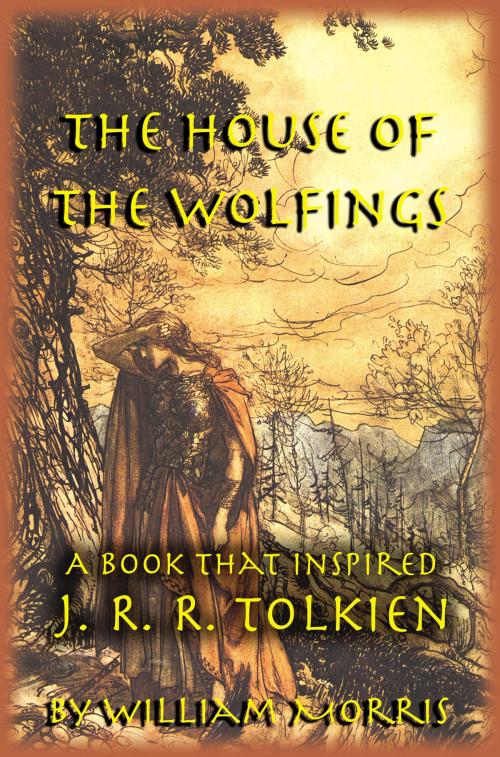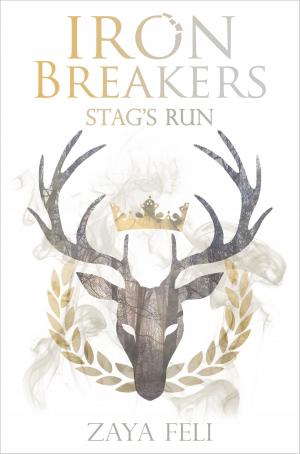The House of the Wolfings: The William Morris Book that Inspired J. R. R. Tolkien’s The Lord of the Rings
Science Fiction & Fantasy, Historical| Author: | Michael W. Perry | ISBN: | 9781587420634 |
| Publisher: | Michael W. Perry | Publication: | November 29, 2008 |
| Imprint: | Smashwords Edition | Language: | English |
| Author: | Michael W. Perry |
| ISBN: | 9781587420634 |
| Publisher: | Michael W. Perry |
| Publication: | November 29, 2008 |
| Imprint: | Smashwords Edition |
| Language: | English |
J. R. R. Tolkien fans who long for more of the joy they get from The Lord of the Rings will find it in the writings of William Morris. He created the literature that Tolkien brought to such perfection. As a young man writing his future wife, Tolkien mentioned the inspiration he was getting from Morris: "Amongst other work I am trying to turn one of the short stories [of the Finnish Kalevala] . . . into a short story somewhat on the lines of Morris’ romances with chunks of poetry in between."
Forty-six years later, Tolkien recalled what he learned from Morris: "The Lord of the Rings was actually begun, as a separate thing, about 1937, and had reached the inn at Bree, before the shadow of the second war. . . . The Dead Marshes and the approaches to the Morannon owe something to Northern France after the Battle of the Somme. They owe more to William Morris and his Huns and Romans, as in The House of the Wolfings or The Roots of the Mountains."
As The Lord of the Rings was being written, Tolkien’s close friend, C. S. Lewis, wrote that Morris provides his readers with a “pleasure so inexhaustible that after twenty or fifty years of reading they find it worked so deeply into all their emotions as to defy analysis.” In words that apply equally well to Tolkien, he said: "It is indeed, this matter-of-factness . . . which lends to all of Morris’s stories their somber air of conviction. Other stories have only scenery; his have geography. He is not concerned with ‘painting’ landscapes; he tells you the lie of the land, and then you paint the landscapes for yourself. To a reader long fed on the almost botanical and entomological niceties of much modern fiction . . . the effect is at first very pale and cold, but also fresh and spacious. No mountains in literature are as far away as distant mountains in Morris. The world of his imagining is as windy, as tangible, as resonant and three dimensional, as that of Scott and Homer."
In short, if you like Tolkien’s Aragorn, if you admire the bravery of the Riders of Rohan, if you long for more adventure in an unspoiled wilderness, or if you wish Tolkien had more romances between men and women, then you will be delighted by this tale from William Morris.
J. R. R. Tolkien fans who long for more of the joy they get from The Lord of the Rings will find it in the writings of William Morris. He created the literature that Tolkien brought to such perfection. As a young man writing his future wife, Tolkien mentioned the inspiration he was getting from Morris: "Amongst other work I am trying to turn one of the short stories [of the Finnish Kalevala] . . . into a short story somewhat on the lines of Morris’ romances with chunks of poetry in between."
Forty-six years later, Tolkien recalled what he learned from Morris: "The Lord of the Rings was actually begun, as a separate thing, about 1937, and had reached the inn at Bree, before the shadow of the second war. . . . The Dead Marshes and the approaches to the Morannon owe something to Northern France after the Battle of the Somme. They owe more to William Morris and his Huns and Romans, as in The House of the Wolfings or The Roots of the Mountains."
As The Lord of the Rings was being written, Tolkien’s close friend, C. S. Lewis, wrote that Morris provides his readers with a “pleasure so inexhaustible that after twenty or fifty years of reading they find it worked so deeply into all their emotions as to defy analysis.” In words that apply equally well to Tolkien, he said: "It is indeed, this matter-of-factness . . . which lends to all of Morris’s stories their somber air of conviction. Other stories have only scenery; his have geography. He is not concerned with ‘painting’ landscapes; he tells you the lie of the land, and then you paint the landscapes for yourself. To a reader long fed on the almost botanical and entomological niceties of much modern fiction . . . the effect is at first very pale and cold, but also fresh and spacious. No mountains in literature are as far away as distant mountains in Morris. The world of his imagining is as windy, as tangible, as resonant and three dimensional, as that of Scott and Homer."
In short, if you like Tolkien’s Aragorn, if you admire the bravery of the Riders of Rohan, if you long for more adventure in an unspoiled wilderness, or if you wish Tolkien had more romances between men and women, then you will be delighted by this tale from William Morris.















